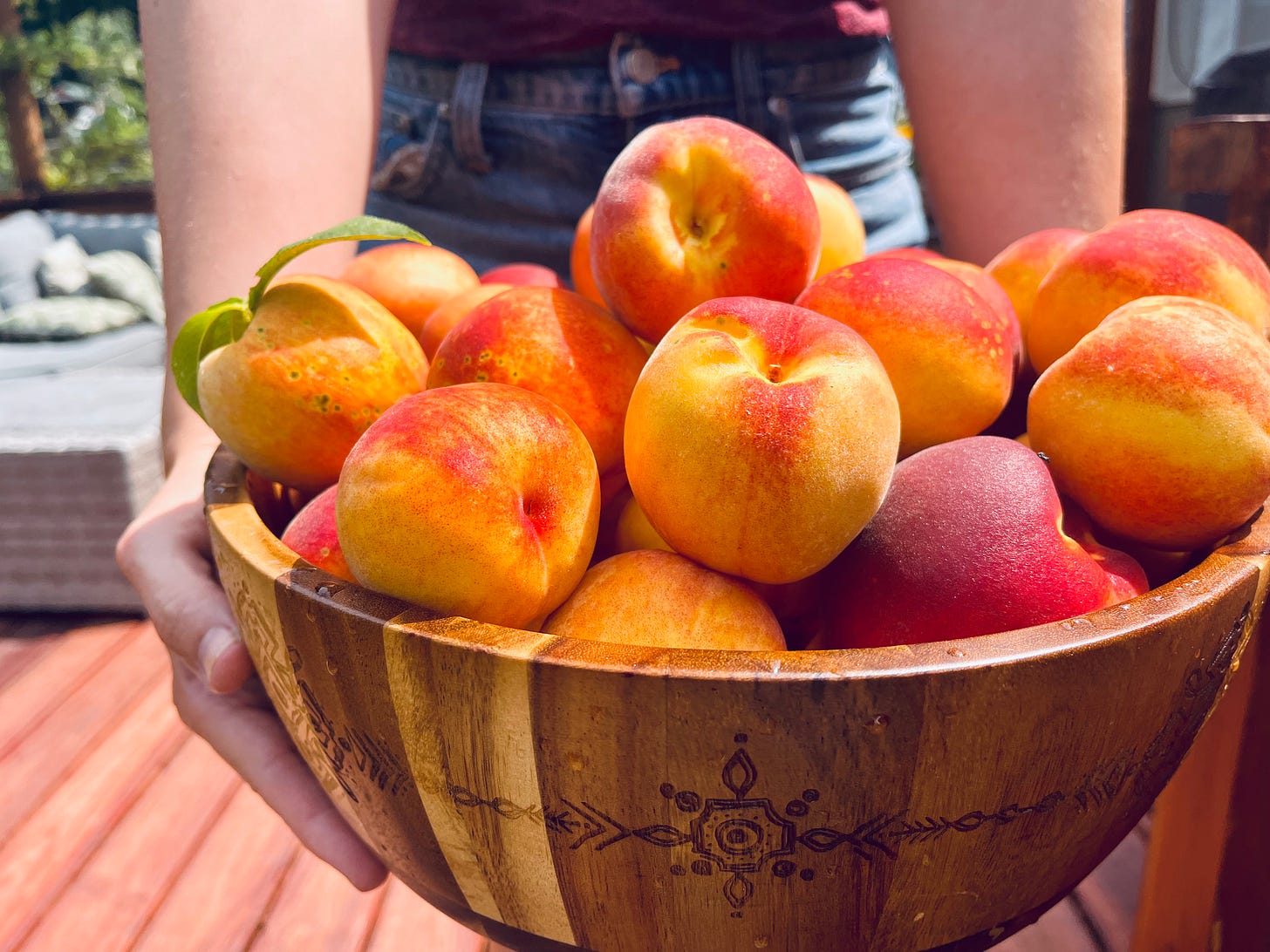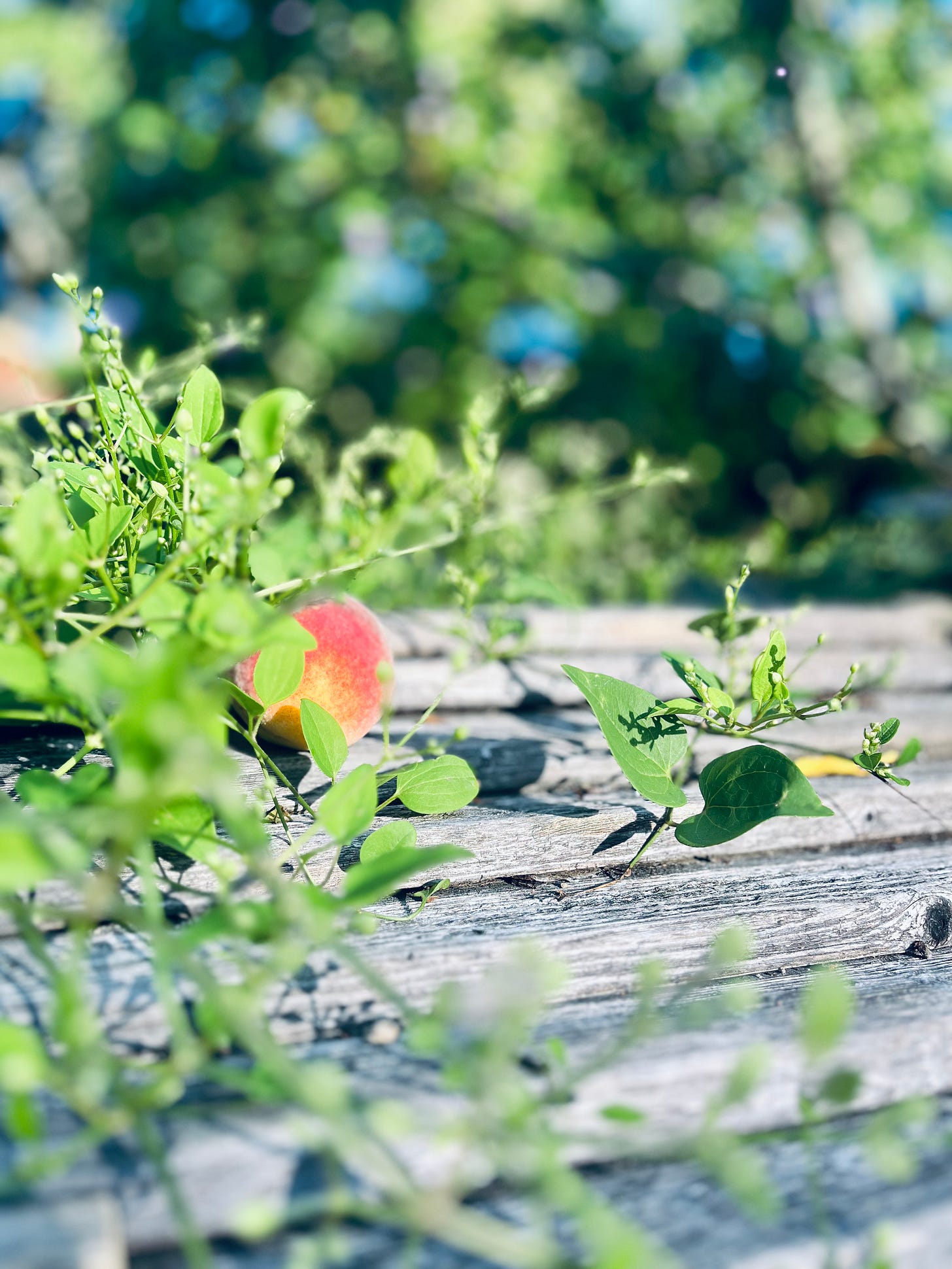Fr. Robert Capon began his curious and exquisite book The Supper of the Lamb with a whole chapter on onions. The book combines devotional reflection with cooking advice, a mixture that appeals to what I hope are the best parts of my nature. But before he starts his book-length instructions for preparing and eating lamb, he forces us to consider the humble onion. Cut one in half, he advises, and regard it, noticing how it’s not at all a simple sphere, but a world to itself, pushing outward, vividly “flame within flame.”
The lesson, which applies as much to the rest of life as to cooking, is that humble surfaces belie layered complexities. The mind seeks patterns everywhere but, to let us manage our shifting flotilla of daily tasks, it also collapses and simplifies. We’ve all seen the glossy purple globes of onions heaped bag over bag a thousand times in the grocery store aisle but, if we look within and actually consider the thing, we’ll see that its interior doesn’t conform to our mental image. We’ve not been seeing the real onion, whose inner pathways are actually a neon network as intricate and folded upon themselves as stairways in an Escher painting or the compressed, crenelated hemispheres of a brain coral.
I was reminded of all this the other day when I decided to follow my own August Gardening Advice and harvest some peaches from the tree in our back yard. By the time I reached this resolve my laziness had already caught up with me: any breeze that riffled its spear-leaved branches sent overripe bombs splattering wetly on the pavement. Yellow jackets, white-faced hornets, squirrels, rabbits, and flies had descended by some unspoken accord and turned our patio into a writhing, toothmarked, unquiet mess that wafted of sugar and rot. Armed with an electric fly swatter, a bowl, and a hat, I waded in to gather what I could from this clutch of decayed neglect.
Once the worst of the rotted peaches had been cleared away—gray blobs infected with a mold that launched from their slick skin in militant little clouds at the slightest touch—the task wasn’t so bad. Of course, my clothes were instantly crawling with insects and I had to pause every minute or so to smack a dive-bombing hornet out of the air with a satisfying snap from my electric racket. But there was also the increasing fascination of the multilayered world I was uncovering. The tree, during this brief and precarious moment of harvest, was its own complete ecosystem.
Delicate-winged wasps had laid their eggs on the skin of the unripe peaches, which had since hatched into pale worms as thin a string, who burrowed black holes into the extruded flesh until they found the pit, where they feasted and fattened toward deadly maturity. In response, a thousand peach-white spiders had taken up residence, stalking the fuzzy mountaintops and ripening valleys to feast on the larvae. I could see them jumping from leaf to leaf with the little bundles dangling still alive from their mandibles, as delicate as dancers, as grim as ghosts. Different breeds of bees warred in the branches, stabbing and wrestling in midair, occasionally plummetting into the cold ashes of our firepit to dual in the slag until the victor rose back into the boughs, gray-faced and streaming an ariel trail of dust. Squirrels had chanced the limits of their near-weightlessness to the very edges of some of the smallest branches, sometimes returning to their nests with fat fruit clenched in their teeth, sometimes starting an avalanche that splattered the earth below with a dozen dislodged peaches and launched the squirrel skyward on the recoil. I saw their little scissoring toothmarks everywhere, chances considered and refused.
The tree was a whole, quasi-archaeological history of its own rummaging, a teeming, dripping, swarming, wind-blown thing that was wound to the highest pitch of frenzied activity, and I was a gigantic invader running away with the last of the spoils. It was hard to fight the feeling that what I was doing was some form of betrayal, but one taste of the fruit and I no longer cared. There were still plenty of peaches poised at that exact moment of sunny ripeness that makes the canned or refrigerated versions seem like a different part of nature, or worse, the product of some malignant industrial accident. I bit into one of them and exhaled. It was like warm gelato. The hornets growled at me, ignored, and insects scuttled unheeded on my clothes. It had been worth the effort. For the moment, I was part of something intense and brief, a flame within a flame.
Like what you’re reading here? Share it with your friends and earn rewards:






The joy of harvest season!